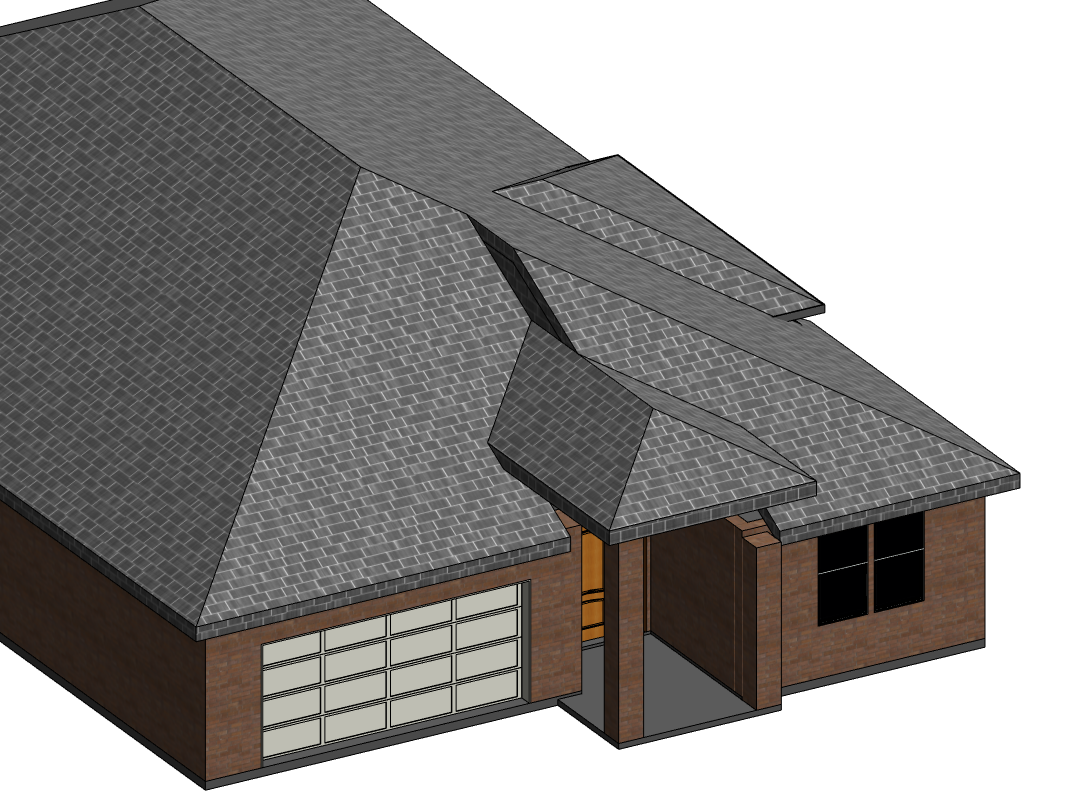See image 1 2nd roof set properties base height offset to same as cutoff height use pick line and pick edges of roof at cutoff height and lock.
Offsetting roof gables from same roof revit.
Draw geometry similar to below and select all but 3 top edges as shown.
Those are easily modeled into the same roof as the main one.
Set desired line to not define slope gable join geometry all done.
There are 2 ways to extend the roof parallel to a ridge.
A hip roof has slopes on all four sides.
Method 1 gable roof with offset ridge.
The first method works only for gable or shed roofs but not hip roofs.
Modifying revit roof slopes to change the roof from a gable roof to hip roof go into the sketch options select all boundary lines and turn on the defines slope parameter note as a default your roof will have a slope of 30 degrees on all boundaries and form a hip roof unless you change the slope designation in the sketch mode per.
In this video i ll teach you step by step how to create any kind of roof shape in under 10 minutes.
The second works for all roof types.
The inward slope of all four sides is what makes it more sturdy and durable.
That would include the small overhangs at the gable.
Flat roof shed roof gable roof pyramid roof fol.
Personally i try to do as much with 1 roof as i can.
A gable roof is placed at the top of a hip roof for more space and enhanced aesthetic appeal.
Revit roof slope can seem complicated at first glance but by learning a few critical features you can create any roof shape you desire.
Hip roofs are more stable than gable roofs.
The sides are all equal length and come together at the top to form the ridge.
1st roof set cutoff height.
But to answer your question about getting rid of the line just use the join command.
In this video i show how to add the following roof types in revit hip roof gable roof shed roof saltbox roof gambrel roof gullwing roof half hip roof mansard rood follow me on.
Repeat steps 2 and 3 to generate the gable roof.









